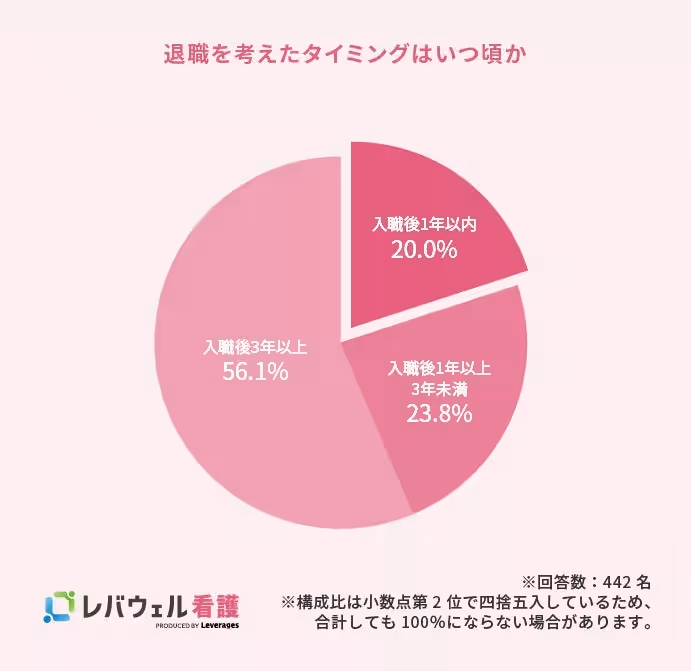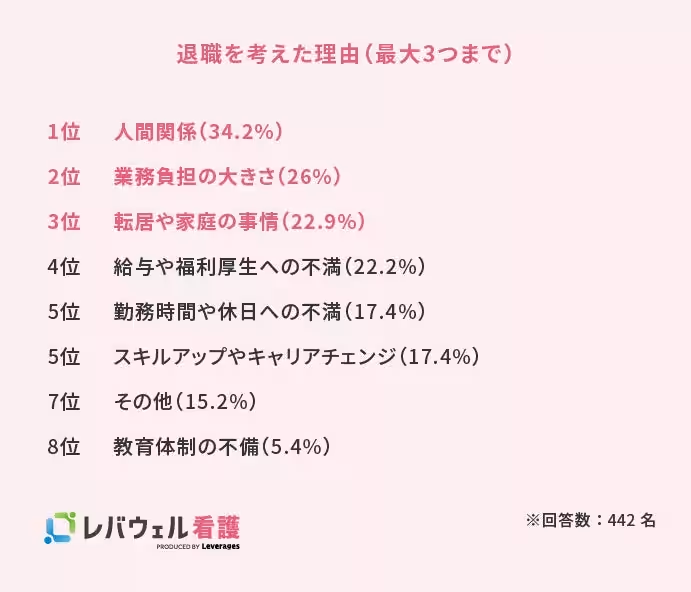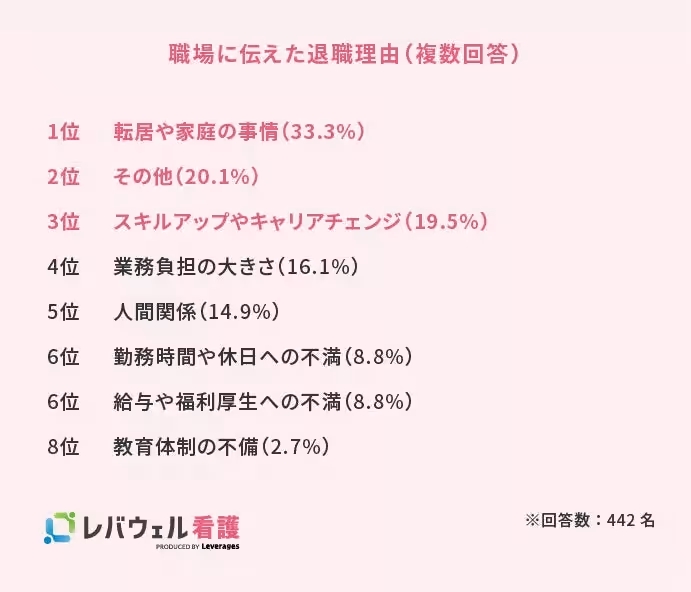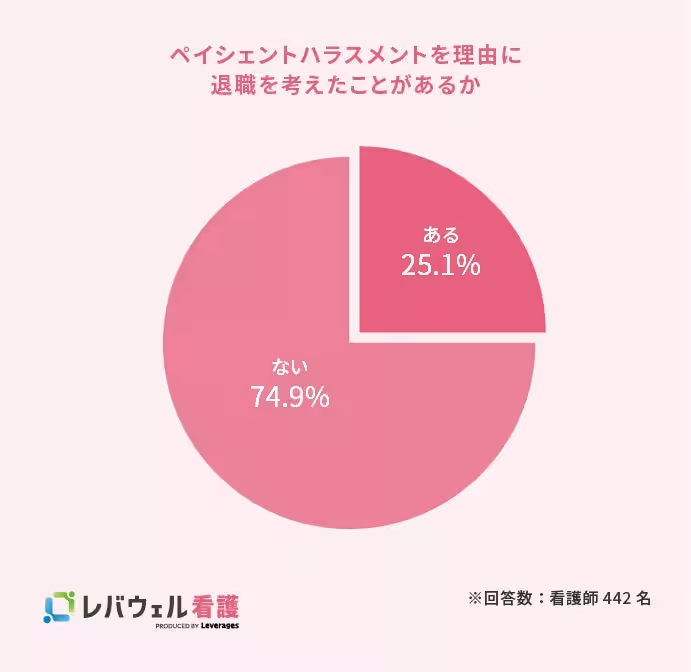

Understanding Nurse Retention Challenges in Japan: Insights from a Survey
Understanding Nurse Retention Challenges in Japan: Insights from a Survey
Nurse retention remains a pressing issue within Japan's healthcare system, particularly as the country faces an aging population. A recent survey conducted by Leverages Co., Ltd. (【レバウェル株式会社】) targeted 442 nurses across the nation to explore their experiences and reasons for considering quitting their jobs early on. The findings reveal significant patterns that healthcare institutions must address to enhance nurse satisfaction and retention.
Early Career Exit Considerations
An alarming 20% of surveyed nurses reported considering resignation within their first year of employment. While most respondents indicated that the most common time to contemplate leaving their positions was after three years, the data suggests that interventions are crucial within the early stages of a nurse's career. This early exit consideration is particularly notable during the transition periods in May and June, when many new nurses join the workforce.
To mitigate this issue, healthcare facilities should implement supportive programs such as one-on-one meetings to provide psychological support for new hires. Establishing a robust onboarding process can also help ease feelings of anxiety and loneliness among nurses, facilitating a smoother transition into their roles.
The Gap Between Reality and Communication
When asked about their motivations for considering resignation, the top reason identified was unhealthy workplace relationships, causing 34.2% of respondents to consider leaving. This was closely followed by concerns regarding heavy workloads at 26%. However, when nurses actually communicated their reasons for leaving, the most common explanations they provided were relocation or family matters, which comprised 33.3% of responses. This discrepancy highlights a significant gap between the actual reasons nurses wish to leave and what they feel comfortable disclosing to their employers.
Healthcare facilities must delve deeper to understand the real reasons behind nurse dissatisfaction, rather than relying on superficial explanations. Initiatives such as establishing mentorship programs or anonymous counseling options can create an environment where nurses feel safe to express their concerns, ultimately allowing employers to take informed actions to address them.
Addressing Patient Harassment Issues
The survey also revealed that 25.1% of nurses who had resigned reported considering it due to
ペイシェントハラスメント





Topics Health)










【About Using Articles】
You can freely use the title and article content by linking to the page where the article is posted.
※ Images cannot be used.
【About Links】
Links are free to use.